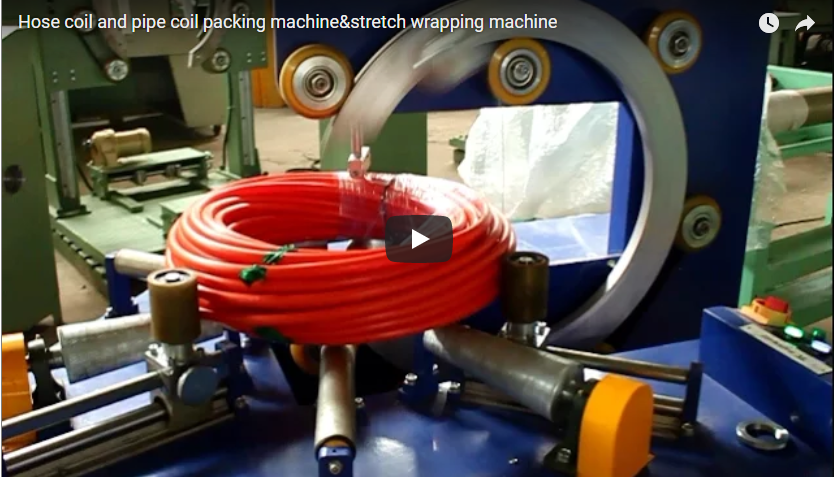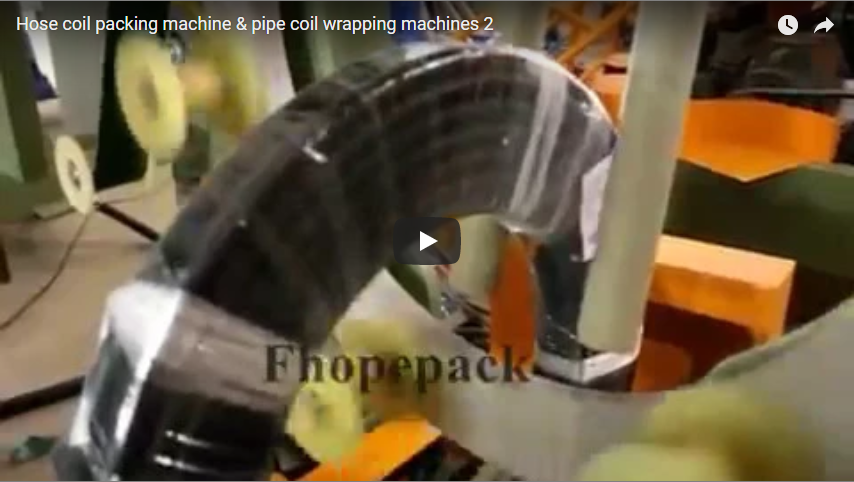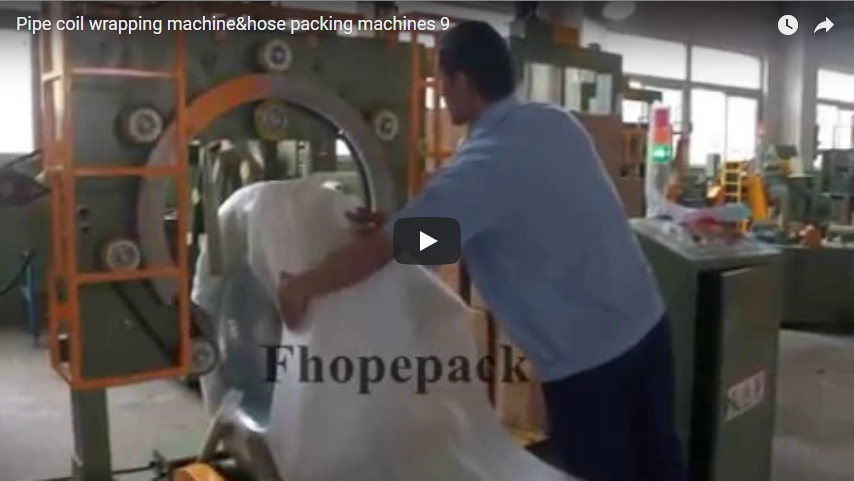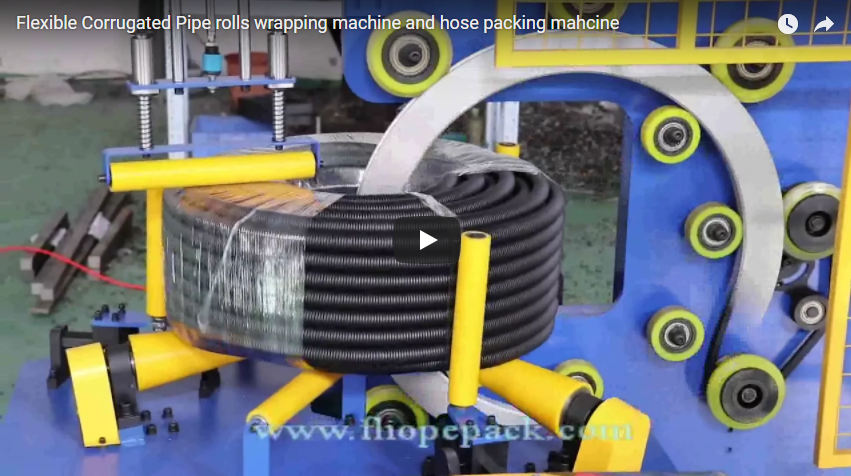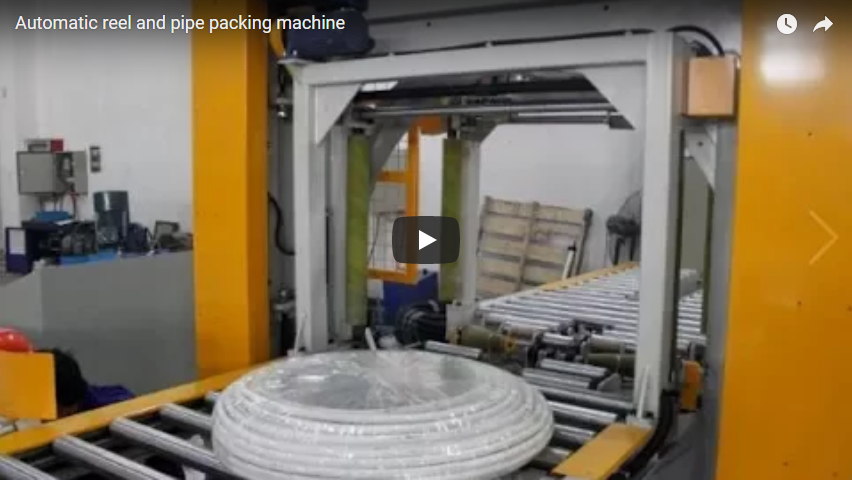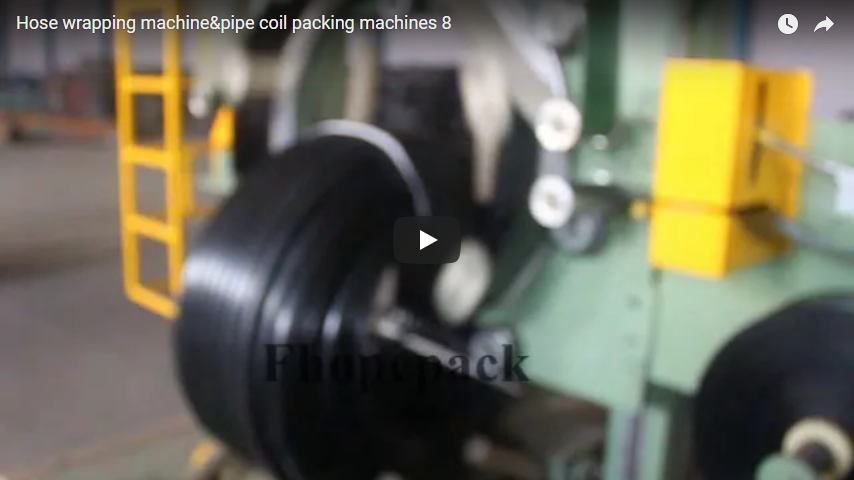Mastering Coil Packaging: A Fabricator's Guide to Pipe and Hose Wrapping Machines
In modern manufacturing and logistics, ensuring product integrity from the production line to the end-user is paramount. For long, flexible products like industrial pipes, hydraulic hoses, and communication cables, this presents a unique challenge. Enter the Pipe Coil Wrapping Machine and Hose Packing Machine – essential automated systems designed specifically for this task.
These robust machines streamline the packaging process, applying protective materials like stretch film, VCI paper, or woven fabrics tightly around coils. This safeguards valuable products against dust, moisture, UV radiation, and the inevitable bumps and scrapes encountered during shipping and storage. Let's delve deeper into the functionality, benefits, and real-world applications of this critical equipment.
1. Why Invest in Automated Coil Wrapping Technology?
Manual wrapping of large, cumbersome coils is often slow, inconsistent, and labor-intensive. Automated pipe coil and hose wrapping machines offer significant advantages:
- Enhanced Protection: Consistent, tight wrapping provides superior protection compared to manual methods, significantly reducing damage rates.
- Increased Throughput: Automation drastically speeds up the packaging process, boosting overall operational efficiency.
- Reduced Labor Costs: Frees up personnel for higher-value tasks, optimizing workforce allocation.
- Material Savings: Precise tension control and optimized wrapping patterns minimize film or material consumption.
- Improved Safety: Reduces manual handling of heavy or awkward coils, minimizing risks of workplace injuries.
- Professional Presentation: Uniformly wrapped coils present a more professional image to customers.
2. Understanding the Mechanics: How Coil Wrappers Work
While designs vary, most pipe coil and hose packing machines operate on a core principle involving relative motion between the coil and the wrapping material dispenser. Common types include:
- Orbital Wrappers: The coil remains stationary (or indexes slowly) while a ring carrying the film dispenser rotates around and through the center of the coil. This is ideal for a wide range of coil sizes and provides excellent wrap coverage.
- Turntable Wrappers: The coil sits on a rotating turntable while a wrapping arm dispenses film vertically. This is often used for palletized loads but can be adapted for large, stable coils.
Key operational features typically include:
- Automatic Feeding & Cutting: Sensors detect the coil, initiate the wrap cycle, and automatically cut the film upon completion.
- Adjustable Tension Control: Ensures the wrap is tight enough for security but doesn't damage the product (crucial for softer hoses or coated pipes).
- Variable Speed Control: Allows optimization based on coil size, weight, and material type.
- PLC Control System: Modern machines utilize Programmable Logic Controllers (PLCs) with touchscreen interfaces (like the Siemens system mentioned below) for easy operation, parameter adjustments, diagnostics, and integration into larger production lines.
3. Key Technical Specifications (Illustrative Example)
The parameters below provide a general overview. Note: Specific machine capabilities can vary significantly based on model and customization. Always consult the manufacturer for exact specifications matching your application needs. The equipment shown in the video may have different parameters.
- Machine Type: Fully Automatic Orbital Stretch Wrapper
- Year of Manufacture: 2023 (Example)
- Condition: New
- Coil Handling Capacity:
- Maximum Outer Diameter: 1200mm
- Maximum Width/Height: 800mm
- (Note: Inner diameter and weight capacity are also critical specs)
- Wrapping Materials Compatibility:
- LLDPE Stretch Film
- PVC Film
- VCI (Volatile Corrosion Inhibitor) Film/Paper
- Woven Polypropylene Tape
- Other materials as specified
- Operational Parameters:
- Power Supply: 220V, 50Hz, Single Phase (Can often be customized, e.g., 480V 3-Phase)
- Wrapping Speed: Typically 10-15 coils per hour (Highly dependent on coil size and wrap cycles)
- Wrap Overlap: Adjustable (e.g., 30-70%)
- Film Tension: Electronically Adjustable
- Control System: Siemens PLC with HMI Touchscreen
- Construction & Dimensions:
- Frame: Heavy-duty welded steel
- Approximate Footprint (L x W x H): 3800mm x 2400mm x 2000mm
- Approximate Weight: 800kg
- Safety Features:
- Emergency Stop Buttons
- Safety Interlocks on Access Doors/Gates
- Light Curtains or Area Scanners (Optional)
- Efficiency:
- Optimized material consumption algorithms
- Potential energy-saving modes during idle periods
- Origin: Made in USA (Example - Origin varies by manufacturer)
- Warranty: 5 Years (Example - Warranty terms vary)
- Compliance: ISO 9001 Certified (Indicates manufacturer's quality management system)
4. Real-World Applications: Where Coil Wrappers Shine
These machines are indispensable across various industries facing coil handling challenges:
-
Agriculture: Protecting Irrigation Systems
From the field perspective, ensuring irrigation hoses arrive undamaged is critical. Sun exposure (UV degradation) and abrasion during transport can shorten hose life. Automated wrapping with UV-resistant film provides a vital protective layer, safeguarding the farmer's investment and ensuring reliable water delivery season after season. This leads to fewer replacements and less operational downtime. -
Telecommunications: Safeguarding Fiber Optic & Coaxial Cables
Sensitive fiber optic and coaxial cables demand meticulous handling. Moisture ingress or physical nicks can severely compromise signal integrity. Coil wrapping machines apply a consistent, moisture-resistant barrier, crucial during storage in depots or transit to installation sites. For fabricators supplying the telecom industry, this ensures their products meet stringent quality standards and perform reliably, preventing costly signal loss issues down the line. -
Automotive Manufacturing: Securing Hoses and Wiring Harnesses
In the fast-paced automotive supply chain, components like fuel lines, brake hoses, and wiring harnesses must be protected from contaminants (oil, grease, dust) and abrasion. Securely wrapping these items ensures they arrive at the assembly line in pristine condition. Operators find that automated wrapping standardizes packaging quality, contributing to smoother assembly processes and reducing the potential for component failure linked to pre-installation damage. -
Building & Construction: Handling Pipes and Tubing
Manufacturers of plastic pipes (PVC, PEX, HDPE) and metal tubing rely on these machines to bundle and protect coils for shipment to distributors and job sites. Proper wrapping prevents scratches, contamination, and makes coils easier and safer to handle with forklifts or other equipment.
5. Choosing the Right Machine and Wrapping Material
Selecting the appropriate wrapping machine involves considering:
- Coil Dimensions & Weight: Ensure the machine's capacity matches your product range.
- Throughput Requirements: Match the machine's speed to your production output.
- Level of Automation: Semi-automatic vs. fully automatic options.
- Wrapping Material: Choose based on protection needs (stretch film for general use, VCI for corrosion prevention, woven tape for heavy-duty applications).
- Budget: Balance features and performance with cost.
6. Operational Tips from the Floor
- Tension Tuning: Finding the sweet spot for film tension is key. Too loose, and the wrap is ineffective; too tight, and you risk damaging softer products or wasting film. Start with manufacturer recommendations and adjust based on results.
- Film Threading: Ensure the film is threaded correctly through the pre-stretch rollers (if equipped) to maximize film yield and wrap integrity.
- Regular Maintenance: Keep rollers clean, check chain/belt tensions, and follow lubrication schedules outlined in the manual to ensure longevity and consistent performance.
Conclusion
Pipe coil wrapping machines and hose packing machines are no longer luxuries but necessities for efficient and reliable operations in many fabrication and manufacturing sectors. By automating the packaging process, they deliver tangible benefits in product protection, operational speed, cost savings, and safety. Investing in the right coil wrapping technology tailored to your specific needs can significantly enhance your product quality and bottom line.
For detailed specifications tailored to your unique pipe or hose products, please reach out.
info@fhopepack.com

